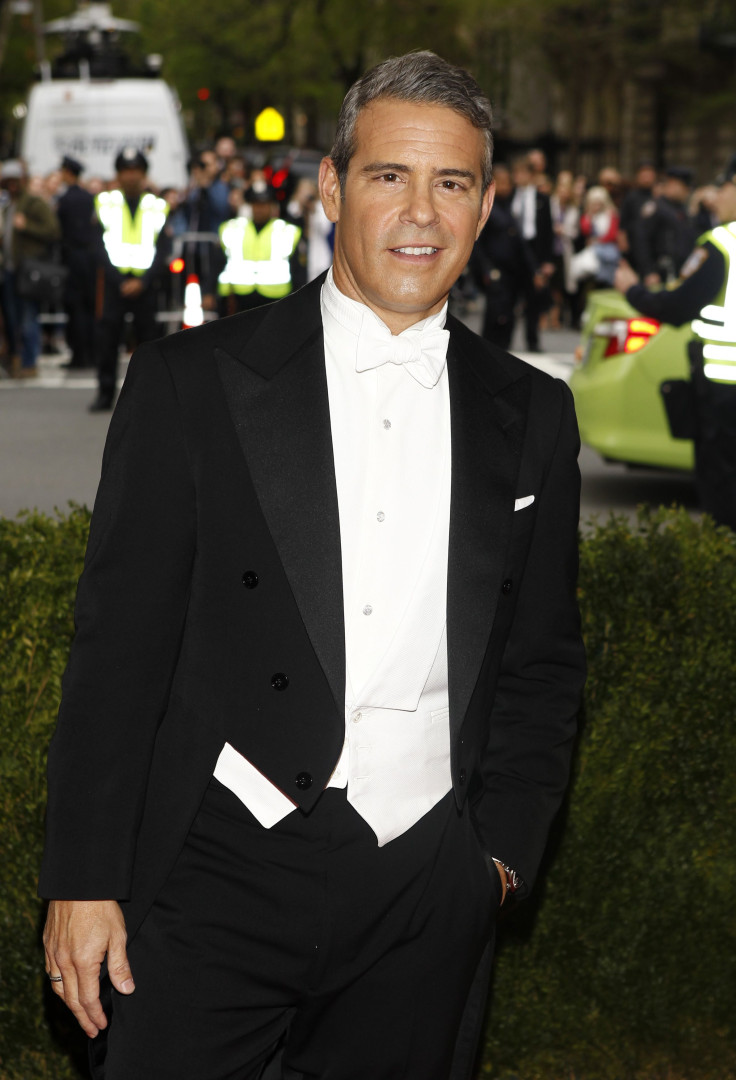Andy Cohen's 'I Slept With A Celebrity' Is Playing With Fire

Andy Cohen is really scraping the bottom of the reality TV barrel. The “Watch What Happens Live” host and “Real Housewives” producer has decided to go balls to the wall with a new unscripted "reality" series forthrightly titled “I Slept with a Celebrity.”
The show’s premise is exactly what it sounds like. Each episode will invite two commoners to the show to discuss the life-defining moment when their private parts touched those of a person who has been on television. Cohen is developing the show with Warner Horizon Television, Warner Bros’ unscripted TV branch, but it does not currently have a network home.
Cohen has a deal with NBC-Universal, giving the company first pick of any new shows he develops, making it possible that “I Slept With a Celebrity” could wind up on Bravo alongside “Watch What Happens Live.” But it’s just as likely that the show won’t be picked up by a network at all, considering its provocative dedication to airing celebrities’ private affairs. And if the show does make it to the air, it will risk attracting as many lawsuits as viewers.
Representatives for Warner Bros. declined to comment on “I Slept With a Celebrity” or any potential legal issues regarding the show. But it’s easy to speculate that the show’s producers could land in hot water, though maybe not for the most obvious reason.
While there is no telling how the producers will vet their guests or their stories, any celebrity who might sue for defamation would have to jump through a lot of legal hoops in order to win a case.
“Even if a statement is scandalous, a statement is not considered defamatory if it is true,” Rose Massary, sports and entertainment lawyer and associate attorney at Romano Law, told IBTimes.
“When it comes to proving defamation, public figures, unlike private citizens, must prove that the defamatory statement was made with ‘actual malice," Massary continued. “This means, to be liable, the person making the statement knew the statement to be false, or acted with reckless disregard as to its truth. If the celebrity is unable to prove actual malice, it is unlikely that a claim of defamation would be successful in court.”
“I Slept With a Celebrity” is more vulnerable to losing a copyright infringement case if it uses the likeness of a celebrity without permission. It’s difficult to think that the show would air a segment on a celebrity’s liaison without a visual reference of some kind, but doing so without the star’s permission could spark a lawsuit, even if the show owns the rights to that image.
“The two main questions are: do they have permission to an image in copyright terms, and do they have permission to the celebrity’s likeness? If the answer to either or both of those questions is no, then they could leave themselves open to legal action,” Mickey Osterreicher, media and copyright lawyer and general counsel for the National Press Photographers Association, explained to IBTimes.
Osterreicher described a potentially actionable, “purely hypothetical” scenario in which a guest on the show snapped a selfie with a celebrity she had an affair with, then sold the copyright on the image to Warner Bros. While “I Slept With a Celebrity” may own that particular image of the star, the celebrity would still have the rights to his own likeness. If “I Slept With a Celebrity” used that likeness to imply an endorsement or to profit off the celebrity, they could potentially face a lawsuit.
“I certainly would hope that they vet this carefully and do the right thing,” Osterreicher said.
© Copyright IBTimes 2024. All rights reserved.






















